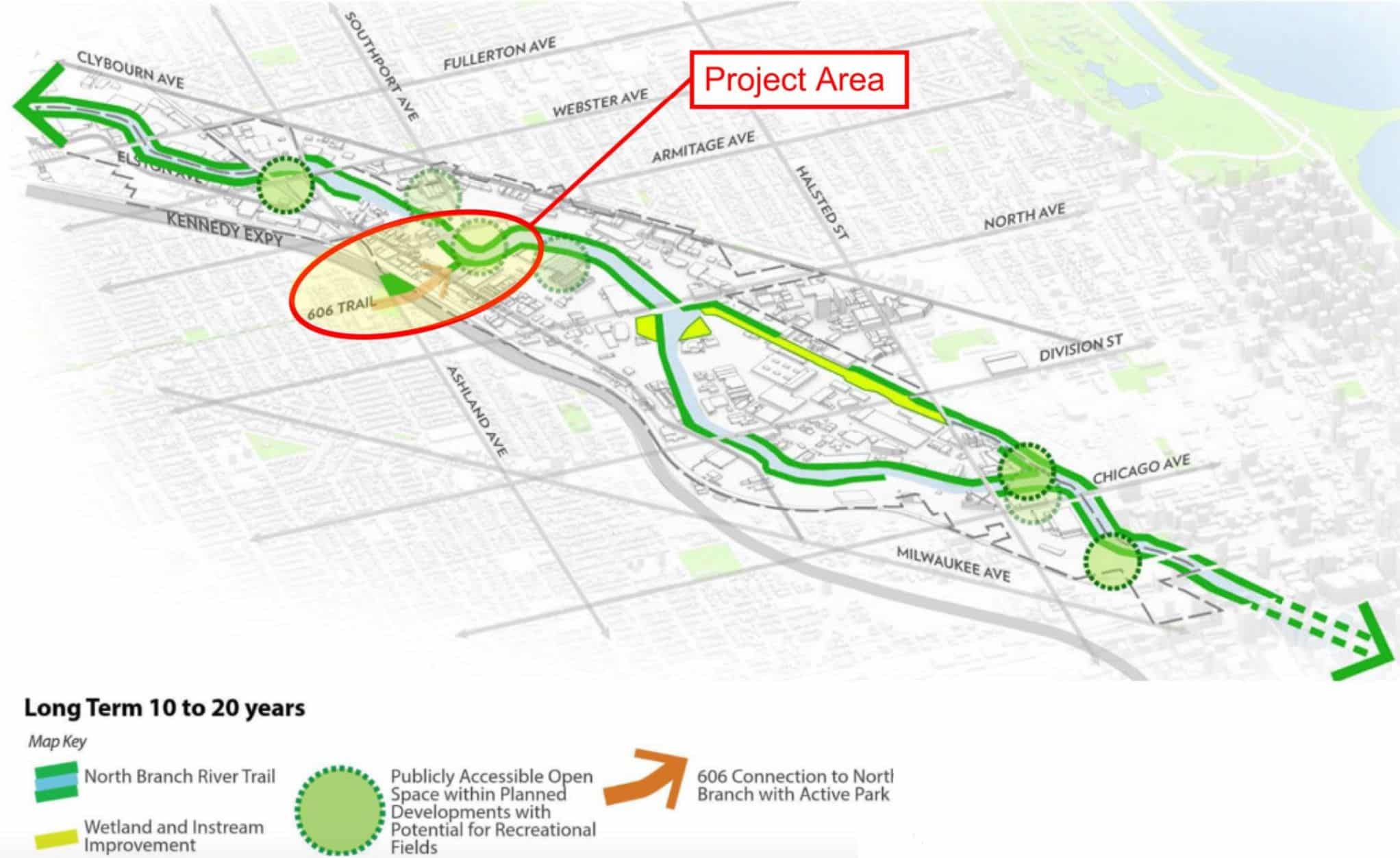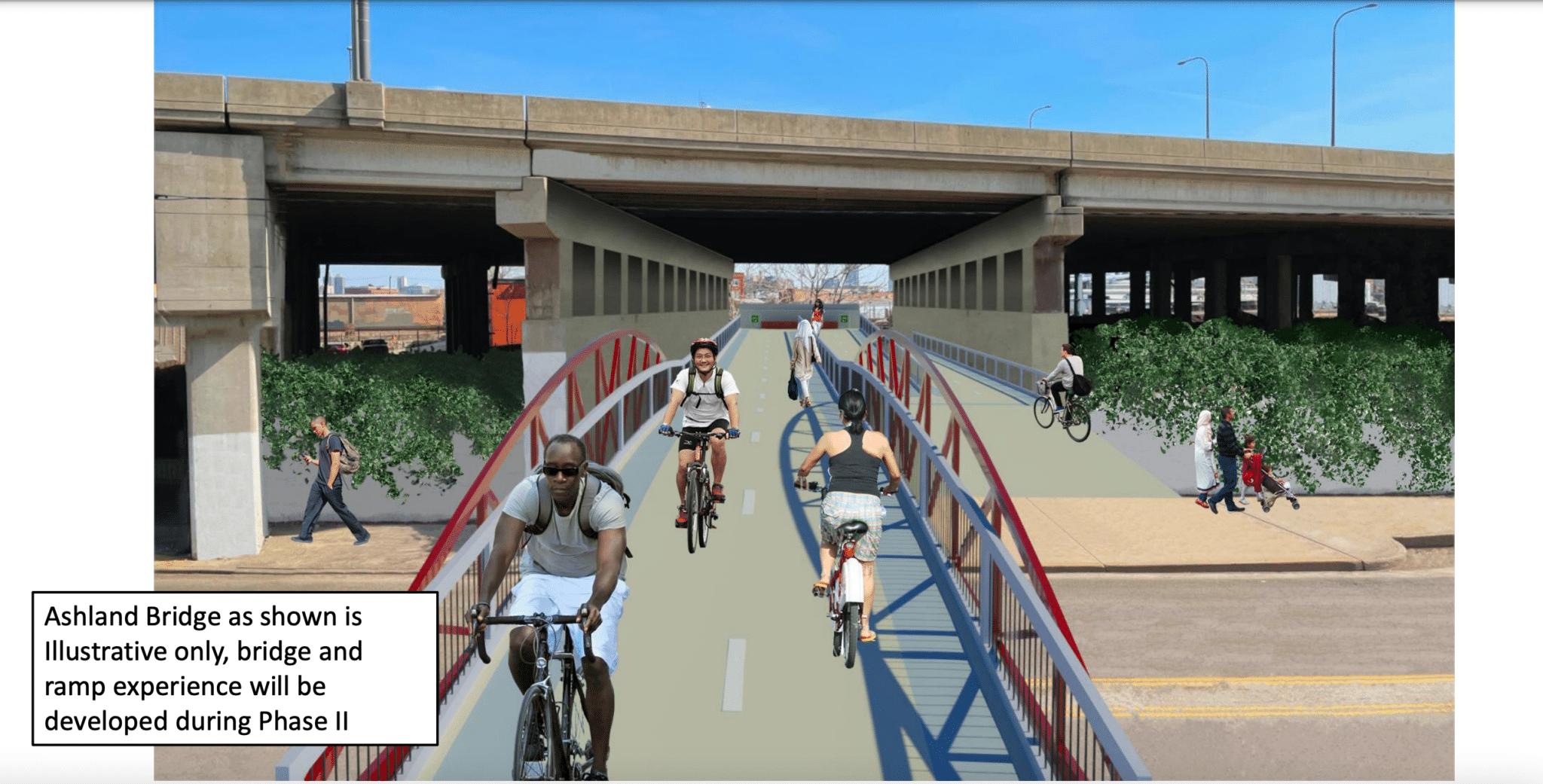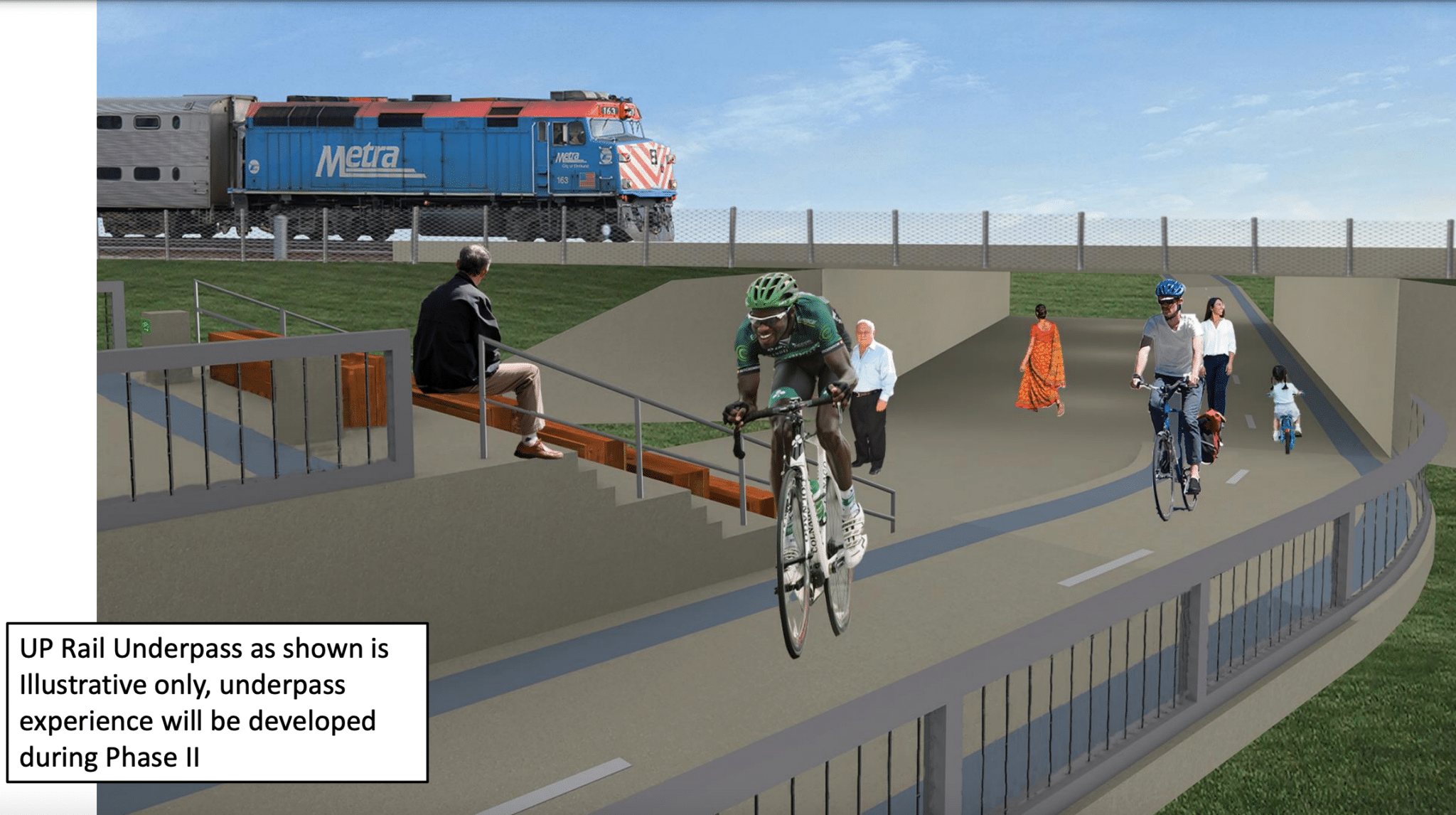
The North Branch Framework program via CDOT
Chicago’s Bloomingdale Trail, or the 606 as it’s known colloquially, is set to expand as part of developer Sterling Bay’s 2019 deal with the City of Chicago. Additions to the popular, elevated walking trail were one of several public infrastructure initiatives promised by Sterling Bay as a part of their Lincoln Yards masterplan.
Now, the first phase of the very first 606 extension is underway — but Sterling Bay is not footing the bill. At least, not exactly. The construction project was discussed in an open meeting on Aug. 2 at 1229 W. Concord place: Lincoln Yards’ life sciences building which, at this point, is the site’s only completed structure.
There, city officials presented on the project’s progress, led by Soliman Khudeira, who spoke on behalf of the Chicago Department of Transportation’s (CDOT) Division of Engineering. As Khudeira described, the plan is to extend the trail eastward, over Ashland Avenue and underneath the Kennedy Expressway, to connect with Elston Avenue.
Currently, though, construction is in the preliminary engineering phases: Phase I, as Khudeira called it. Phase I includes data collection, environmental studies, identifying possible alternatives, concocting a preliminary design, stakeholder coordination, all before attaining design approval.

The Ashland bridge and ramp under the I-90 via CDOT
Phase I is being funded by Sterling Bay and costs roughly $750,000. However, CDOT is still looking for funding for Phase II and Phase III (detailed engineering and construction, respectively).
When Lincoln Yards was initially approved in April 2019, the city created the $1.3 billion Cortland and Chicago River tax-increment financing (TIF) district to reimburse Sterling Bay, as the developer pledged to pay for various infrastructure projects up-front. However, this primary extension to the Bloomingdale trail physically falls outside the boundaries of that TIF district.
According to Khudeira, Congressman Mike Quigley has secured about half of the necessary Phase II fund as part of a congressional earmark; that amount comes to roughly $1.4 million. The rest is yet to be secured which puts the project’s completion off until, at the very least, the end of 2026.
In all, the trail extension will cost about $30 to $40 million.

The UP Rail underpass via CDOT